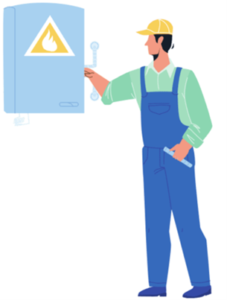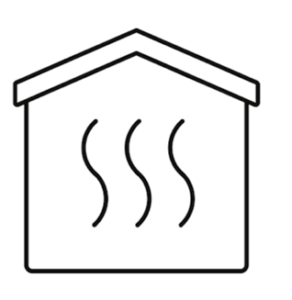That’s it! We have entered the coldest time of the year and the inevitable increase in energy bills can become a source of anxiety for a lot of families. Don’t worry, O’Neil Care is there to reassure you and give you the best tips to keep your home safe and warm. We’ve rounded up some of the best FREE ways to cut down on your energy use and save money on your bills by being more energy-efficient. Scroll down for some simple tips on reducing energy consumption and the advantages of eco-friendly swaps…
Understand How Your Energy Is Used
There are many easy ways to save on your electricity, gas and water bills. Some are as simple as paying more attention to how energy is used in your home. By following a few simple tips, you can reduce your energy consumption and better manage your heating bills.
Book a Regular Check-Up
Did you know…
O’Neil care offers a Free Annual Boiler Service with every cover plan? Our Gas Safe Registered engineers will inspect your heating system to keep your boiler in the best condition possible. A well-maintained boiler is energy efficient and can reduce your energy bills by up to 30p in every pound you spend on heating your home. That’s a possible 30% off your current energy bill! What did your last energy bill cost – Is it time to book a boiler service?
Improve Insulation Throughout Your Home
If you live in an older building, your insulation may be out of date or inefficient; Conducting a professional home energy audit to identify areas prone to heat loss can save you money on gas bills. Adding thermal insulation to your home can significantly reduce heat loss and improve the efficiency of your central heating system. In most homes, attics and basements tend to be places where heat loss occurs most frequently. So checking or adding insulation in these areas is a good way to make heating your home more energy-efficient. Insulation is your friend, check out our helpful guides on the subject to help reduce heat loss in your home.
Generate some extra heat from your radiators
For radiators situated on external walls, you can easily add heat reflector panels or foil down the back of them to stop it heating a wall, more than the room! Again, cheap, easy but certainly effective. Also, if you have furniture that’s in front of a radiator, it may be worth a bit of room reconfiguration to get more heat out into the room rather than being stuck behind a sofa.
Quick-Tips:
An often-overlooked tip, is reusing the heat from things like cooking in the oven or taking a hot bath. Redistributing heat can increase the overall temperature of your home.
- Leave the oven door open for a while when you’re finished cooking.
- Open the bathroom door after a shower or bath.
All of these things give your home an extra boost of warmth, especially in winter.
You can also set your thermostat to automatically turn off the heating during working hours so that you don’t waste gas when you’re not at home. Find out more about smart heating controls here.
Use Your Heating Wisely
According to the Department of Energy, you can save up to 10% on heating and cooling costs by setting your thermostat between 7° and 10° degrees celsius for eight hours a day. This is to reduce your overall energy consumption without dramatically altering your thermostat. If you regularly have your heating up above 21°C we have another tip to really save money. Consider lowering your thermostat temperature by one degree every week so that you and everyone else in your home can feel comfortable in a home heated to 21 degrees.
What Temperature Should My Home Be?
When you’re away from home during the day, set the thermostat to no higher than 21°C as an average temperature. Good advice would be to turn down the thermostat when you leave the house or go to bed at night. Smart controls allow you to adjust the temperature according to a predefined program, so you can reduce it when you are not at home or when you are sleeping. Another point to consider – while entertaining your friends, turn the thermostat a degree or two lower before they arrive. More people means more heat, a lower temperature to start with means everyone will be comfortable throughout the night.
When The Home Is Empty?
Heating your home when no one is home is a waste of energy and a waste of money. If no one is at home, be sure to lower the temperature to around 13°C.
When Everyone Is Sleeping?
At night when everyone is sleeping, it’s best to set the thermostat to 17°C for a comfortable nights sleep.
When I Have Guests?
It’s best to reduce the heating temperature in your home a degree or so before people arrive. More people = More heat!
When It’s Just My Household?
The average temperature of a UK household is recommended to be 21°C to be comfortable. This is a guide, but we suggest you should adjust your heating system to what is comfortable for you.
To save even more, wear layers and keep the thermostat slightly lower when you’re at home, even during the day. By keeping your home thermostat at 19°C or 20°C, you will save money on your next bill. Every degree counts in the long run.
Smart Heating Controls
A great way to cut down on gas costs is to install a smart thermostat. Strategic thermostat programming can help reduce the amount of energy used to heat your home and keep your home at a comfortable and energy-efficient temperature.
57% of UK homes use some form of smart technology controls. From lights, thermostats to smart security. It’s all there on your smart device; phone, tablet, or smart speaker to save you money by boosting your energy efficiency and making your home fully customisable from where ever you are. Even something as simple as using your mobile to turn off the heating after you leave the house. Or setting the heating to turn on when you return, could save you around £120 on your heating bill annually*. Smart tech has you covered whenever you need it. Have you thought about upgrading yet? Get in touch
Pay Attention To Your Hot Water Usage
If you have a large family and you are worried about running out of hot water, shorter showers at lower temperatures is an easy way to reduce your energy consumption. Likewise, finding ways to reduce the amount of water you use in your home can help you lower your gas bill immediately.
Why Is This Important?
Older Boilers Need More Help To Save Energy
The life of an average boiler is around 12-15 years and advancements in energy tools can change dramatically in this time period. Meaning, every year boilers are becoming more and more energy-efficient. If you are using an old inefficient boiler to heat your home, its reduced efficiency means your household will use more gas even if you keep the thermostat at the same temperature as before. ‘Inefficient’ boilers cannot burn all the gas they are producing properly. Meaning you are spending more money producing more energy to use your heating system the same way you always have. Incomplete burning of natural gas or liquefied petroleum gas (LPG) produces Carbon Monoxide (CO), which is an extremely poisonous gas that can cause CO poisoning, read more about the effects of CO poisoning in our blog post.
Is It Worth A New Boiler Just Now?
We fully appreciate that gas isn’t the long-term answer, but, if you have an old, inefficient boiler perhaps upgrading to a condensing A-rated energy-efficient model may help in the interim. Not only will you use less gas and what you spend on it, but you’ll also be emitting less carbon dioxide into the environment. The typical life of a boiler is 12-15 years, so it won’t be there forever, but can help in the meantime – as well as avoiding potentially expensive breakdowns, which always occur when you least want them to. By upgrading your heating system, you can improve your home efficiency rating and reduce the amount of greenhouse gas entering the environment, all the while saving yourself money on the energy you use every day.










